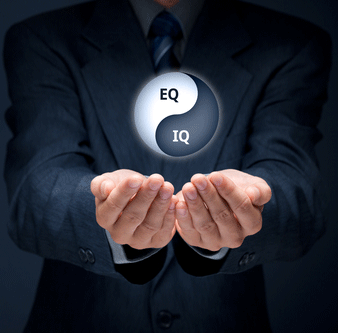How to Improve Emotional Intelligence? Five Short Tips Can Change Your Life!
Emotional intelligence (EI) is a widely discussed topic and serves as an alternative to traditional intelligence measures. Through EI measures, you can recognize your own emotions and the emotions of others along with managing them healthily and productively.
How to improve emotional intelligence is one question that needs to be answered precisely so that it can be determined how you can be successful in your careers and relationships. There are several ways through which you can improve your emotional intelligence along with developing empathy and self-awareness.
Seven Methods to improve emotional intelligence
If you want to know how to improve emotional intelligence, then below mentioned are some ways that will help you become emotionally intelligent.
Reduce negative emotions
A matter of fact is that no aspect of emotional intelligence can be rendered as more important than your ability to manage your own negative emotions so that they are not overwhelmed by your thoughts and judgments. I am convinced that law of attraction works in full capacity when you surround yourself with negative thoughts and images.
The way in which you perceive a situation can have an impact on your feelings and thoughts. Below mentioned are two examples:

Reducing the fear of rejection: A good way to overcome your fear of being rejected is to give yourself multiple options in different situations so that you always have strong alternatives no matter what happens. This can be simply explained as never put all your eggs in one basket. Devise different plans so that if one plan does not work, you can jump onto your alternate plan.
Reducing negative personalization: When you have adverse feelings about a persons' behavior, avoid jumping to a negative conclusion straight away. Rather, you need to evaluate different circumstances of a situation before reacting to it. When you avoid personalizing the behaviors and attitudes of other people, you will be able to perceive their feelings and behavior more objectively. When you widen your perspective, you can reduce your possibility of misunderstanding others.
Avoid being at the victim position
When you start considering yourself as a victim, you will opt yourself out from accountability for your emotions and other life circumstances. However, this is related to dis-empowering and hinders you from harnessing your own ability to make use of intentions and change your surroundings. First, you must take responsibility for your results. No doubt serious accidents may happen in life yet in most of the situations none else is responsible for your failures. After admission, you can start your journey to look at your emotional weaknesses and strengths.
Look upon your thoughts to Improve Emotional Intelligence
Though emotions are involuntary; however, this does not mean that you can afford out of control thoughts. You need to balance your recognition and acceptance of your behavior and feelings through a strong commitment that they will not rule over you. Revise your thoughts and understand what you can learn from every feeling and then find a way to bring yourself to a calmer condition. In this process, you can seek help from meditation through creative activities and physical activities.
Practice upon responding instead of reacting
There is a very small difference between responding to a situation and reacting to it. Reacting is rendered to be an unconscious procedure where emotional aspects are playing an important role. You tend to behave unconsciously in a way which provides relieves to that particular emotion. On the other side, responding is a conscious procedure which involves noticing how you feel and then making a decision as to how to behave.
Create a positive environment
When you start creating a positive environment around yourself, you are not only improving your quality of life but also providing an excellent surrounding to those around you. It is imperative to understand that emotional intelligence is a lifetime practice and continuous improvement is empirical. Even if you think that you have attained all skills for improving EI, you should remember that practice is essential. If you practice well, you will reap the benefits of emotional intelligence throughout your life.
Practice with Free IQ Tests
Recent Articles
-
What type of test did I take
Apr 04, 22 04:09 AM
I was given a psychological test years ago, but wasn’t told what it was for. The rating used a bell curve and my score fell in the above average not yet -
ﹰﹰﹰﹰﹰﹰﹰGOOD
Aug 13, 21 03:20 PM
Since the enneagram test helps people to understand their strength and weaknessess. And helps them remove their weaknesses then the test is good -
Knowing the inner me
Aug 13, 21 03:17 PM
Sometimes I ask myself that is this my behaviour or not? Because I am really shy and I lack confidence, I find it hard to socialize with other people.I
